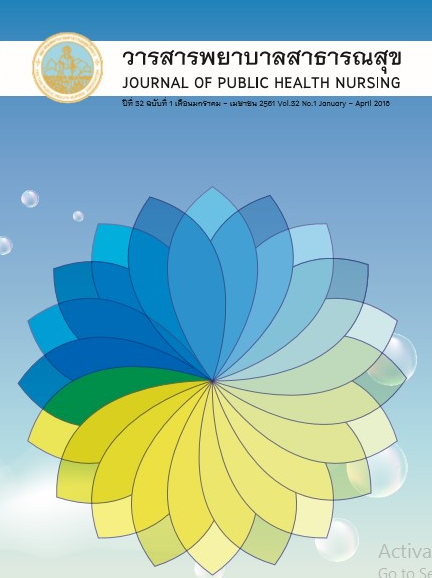A Causal Model of Factors Affecting Depression in Traffic Police of the Metropolitan Police Bureau
Keywords:
Depression, Traffic PoliceAbstract
High expectation and having to manage the traffic during rush hours makes traffic control
a job of high pressured and stress. It puts traffic control police officers at risk of experiencing
mental health problems. This research aimed to study factors affecting depression and its
prevalence in traffic control police officers under Bangkok Metropolitan Police Bureau supervision.
Six-hundred and twelve traffic police officers were selected using stratified random sampling.
Participants were asked to answer questionnaires assessing demographic characteristics, level of
depression, family relationships, effort-reward imbalance, organizational support and positive
affect. A structural equation model (SEM) was employed for data analysis using the Lisrel program.
Findings showed that the prevalence of depressive symptoms was 39.2%. The hypothesized
model fit the empirical data well (2 = 187.78, df = 44, p <.01, RMSEA = .073, GFI = 0.95,
CFI = 0.97). The model explained 22% of the variance in depression. The findings also suggest
a direct positive influence of work-dedication and reward imbalance with an influential
coefficient of .12 (β = .12, p<.01). Results also showed that the remaining variables also had
significant direct negative influences on depression: family relationships ( = -.33, p<.01),
positive affect ( = -.12, p<.05) and organizational support ( = -.09, p<.05), respectively.
This study provides a foundation for preventing depression and assisting traffic police
under the Bangkok Metropolitan Police Bureau to avoid conditions that may interfere with their
performance. Understandings of the relevant factors associated with depression were provided.
Mental health promotion and prevention guidelines are discussed baseds on the findings.
For example, peer relationship and emotion regulation should be facilitated. Support from
supervisors with equitable and transparent performance evaluations should be provided officers.
Downloads
Published
How to Cite
Issue
Section
License
บทความที่ตีพิมพ์และแผนภูมิรูปภาพถือเป็นลิขสิทธิ์ของวารสารพยาบาลสาธารณสุข (Thai Public Health Nurses Association)







